Efficiency and Investment for the Energy Transition: Stuttgart welcomes Bălți
From June 3rd to 5th, the City of Stuttgart and the Renewable Energy Agency welcomed a delegation from the city of Bălți in the Republic of Moldova to Stuttgart’s Department of Environmental Protection to advance the energy partnership between the two cities as part of the “Energy Transition Town Twinnings 3.0” project, funded by Germany’s Federal Foreign Office.
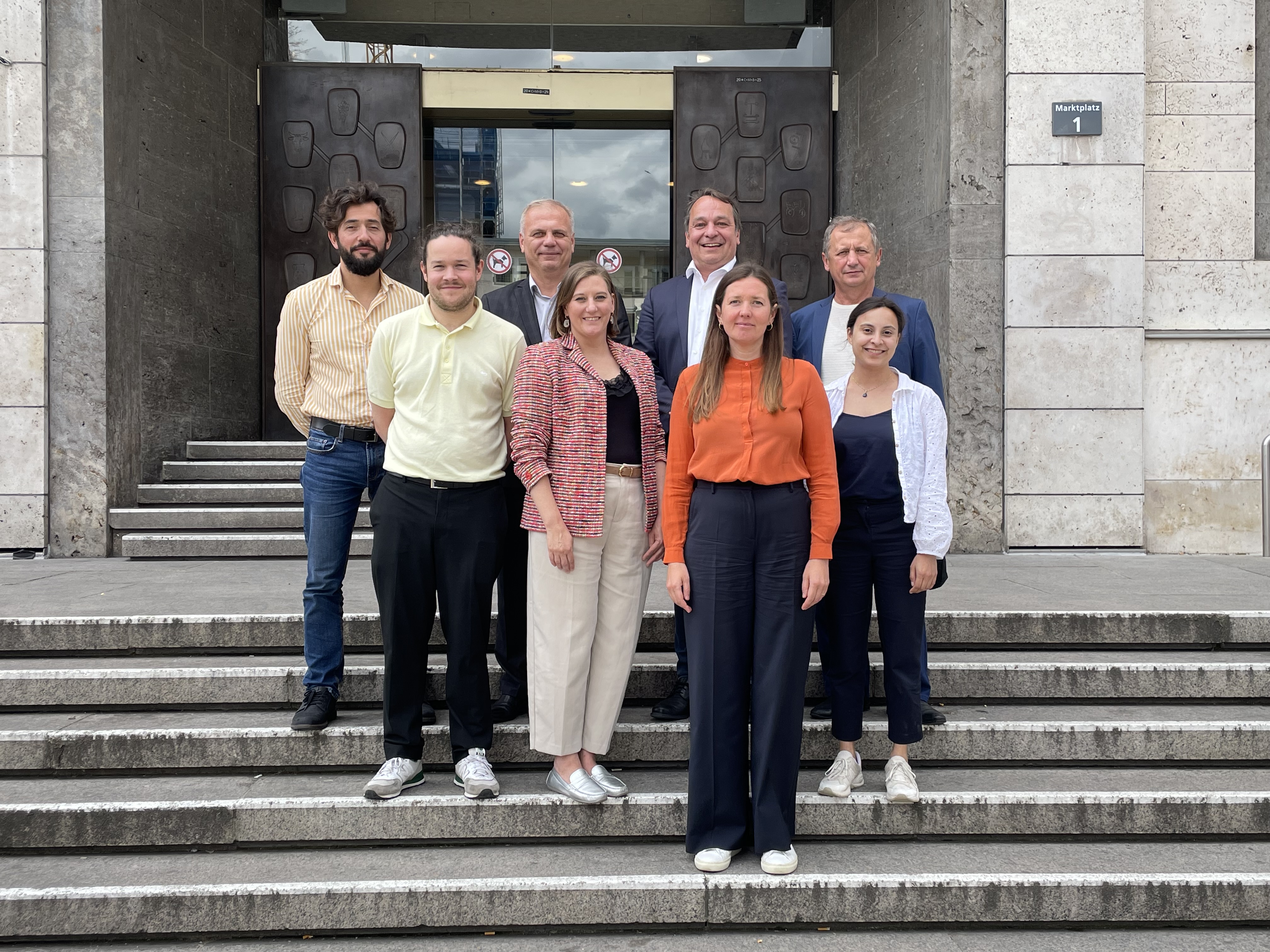 After nearly a year of project implementation, the Moldavian delegation arrived on the evening of June 3rd. Vitalie Balan, Deputy Mayor for Municipal Public Services, Energy, Transport, Architecture, and Mobility of the city of Bălți, and Veceaslav Zincovschi, Head of the Municipal Budget Department, were accompanied by Evgheni Camenscic, Energy Expert from the German Corporation for International Cooperation (GIZ) in Moldova. They joined their Stuttgart hosts in a relaxed atmosphere for a shared dinner featuring regional cuisine, setting the tone for the days ahead.
After nearly a year of project implementation, the Moldavian delegation arrived on the evening of June 3rd. Vitalie Balan, Deputy Mayor for Municipal Public Services, Energy, Transport, Architecture, and Mobility of the city of Bălți, and Veceaslav Zincovschi, Head of the Municipal Budget Department, were accompanied by Evgheni Camenscic, Energy Expert from the German Corporation for International Cooperation (GIZ) in Moldova. They joined their Stuttgart hosts in a relaxed atmosphere for a shared dinner featuring regional cuisine, setting the tone for the days ahead.
Transnational Opportunities: Financing and Engagement
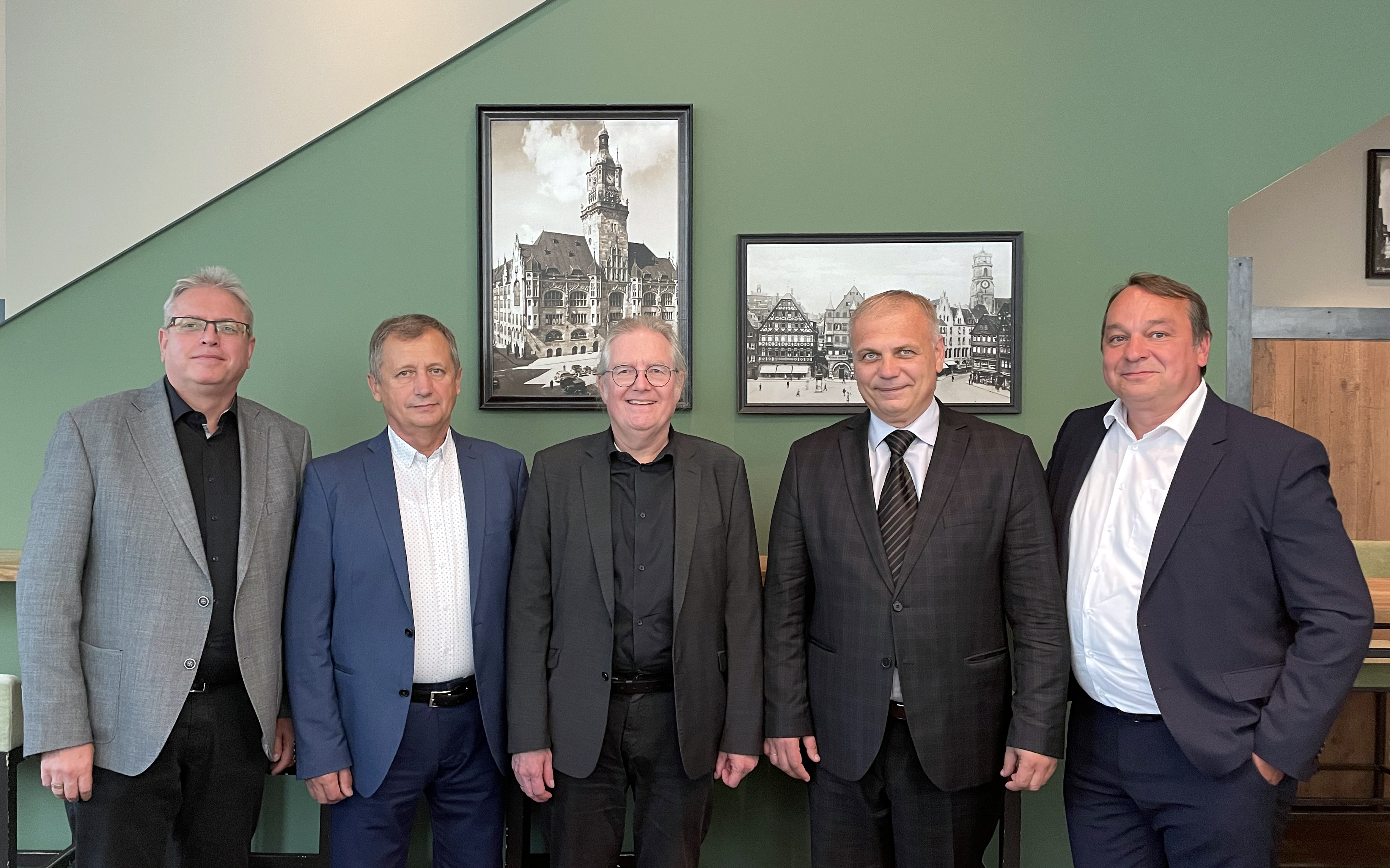 On Wednesday morning, the program officially kicked off at the Department of Environmental Protection. Andreas Neft, Head of the Department, welcomed the guests and offered initial insights into the city’s and the department’s energy policy history. The first part of the workshop focused on Stuttgart’s best-practice experiences. Lea Mistele, employee at the department, demonstrated how the city has raised awareness and sensitivity for the energy transition and energy-saving measures over the years.
On Wednesday morning, the program officially kicked off at the Department of Environmental Protection. Andreas Neft, Head of the Department, welcomed the guests and offered initial insights into the city’s and the department’s energy policy history. The first part of the workshop focused on Stuttgart’s best-practice experiences. Lea Mistele, employee at the department, demonstrated how the city has raised awareness and sensitivity for the energy transition and energy-saving measures over the years. 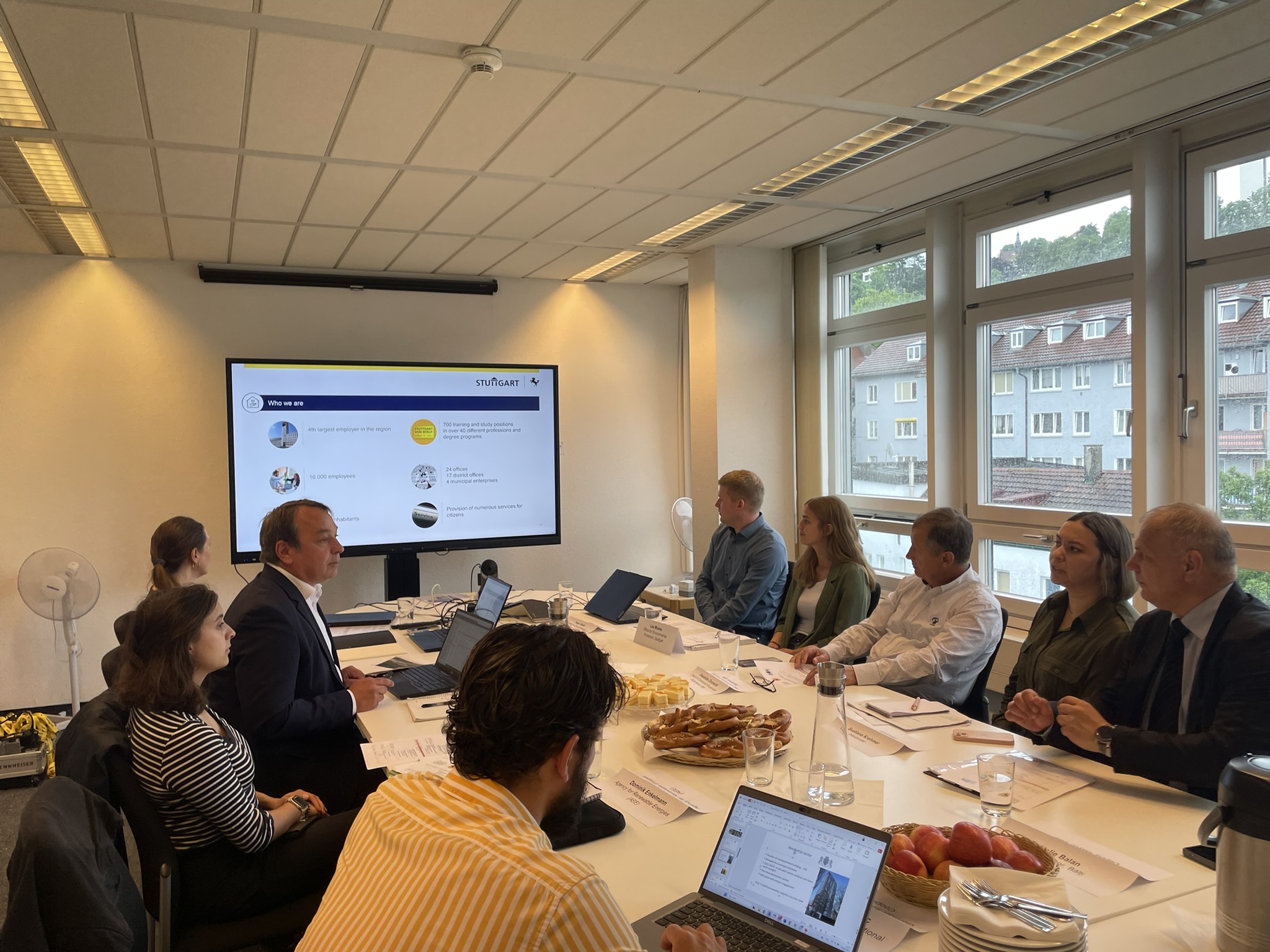
Next, Augusto Acosta from the Luxembourg office of the European Investment Bank joined virtually to explain how Bălți could benefit from the City Climate Finance Gap Fund to continue implementing energy transition and climate protection measures even beyond the EWPS 3.0 project.
During lunch, Stuttgart’s Deputy Mayor for Urban Planning and the Environment, Peter Pätzold, took time for a conversation with his Moldovan colleague, Vitalie Balan. Dr. Frédéric Stephan, Head of the Department of External Relations, along with his colleagues Sakina Ramharak and Katharina Lenz—whose department initiated the partnership—also contributed to the workshop with their many years of experience in city partnerships and international relations.
Rosenstein and Neckarpark: Innovation & Inspiration
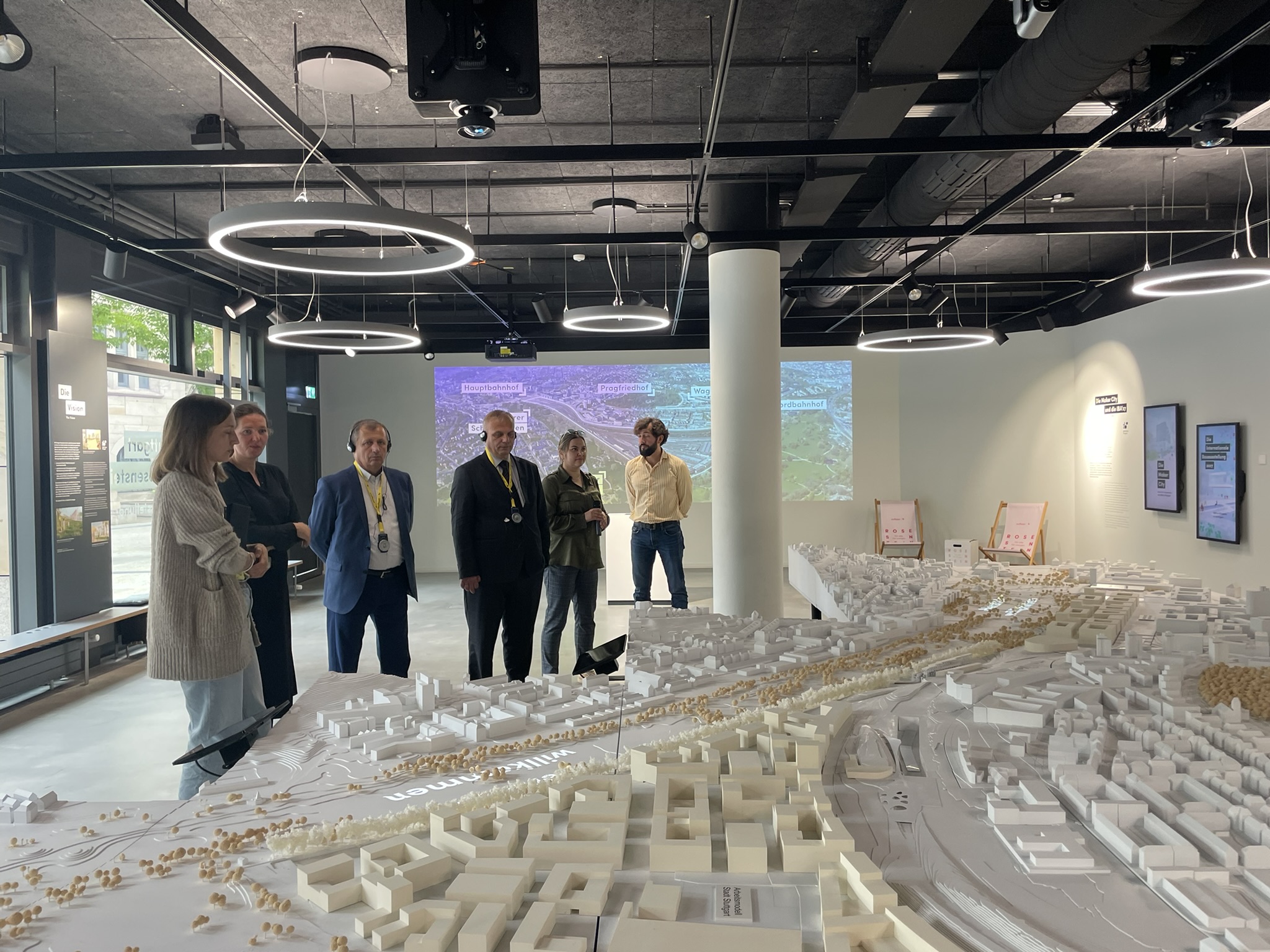
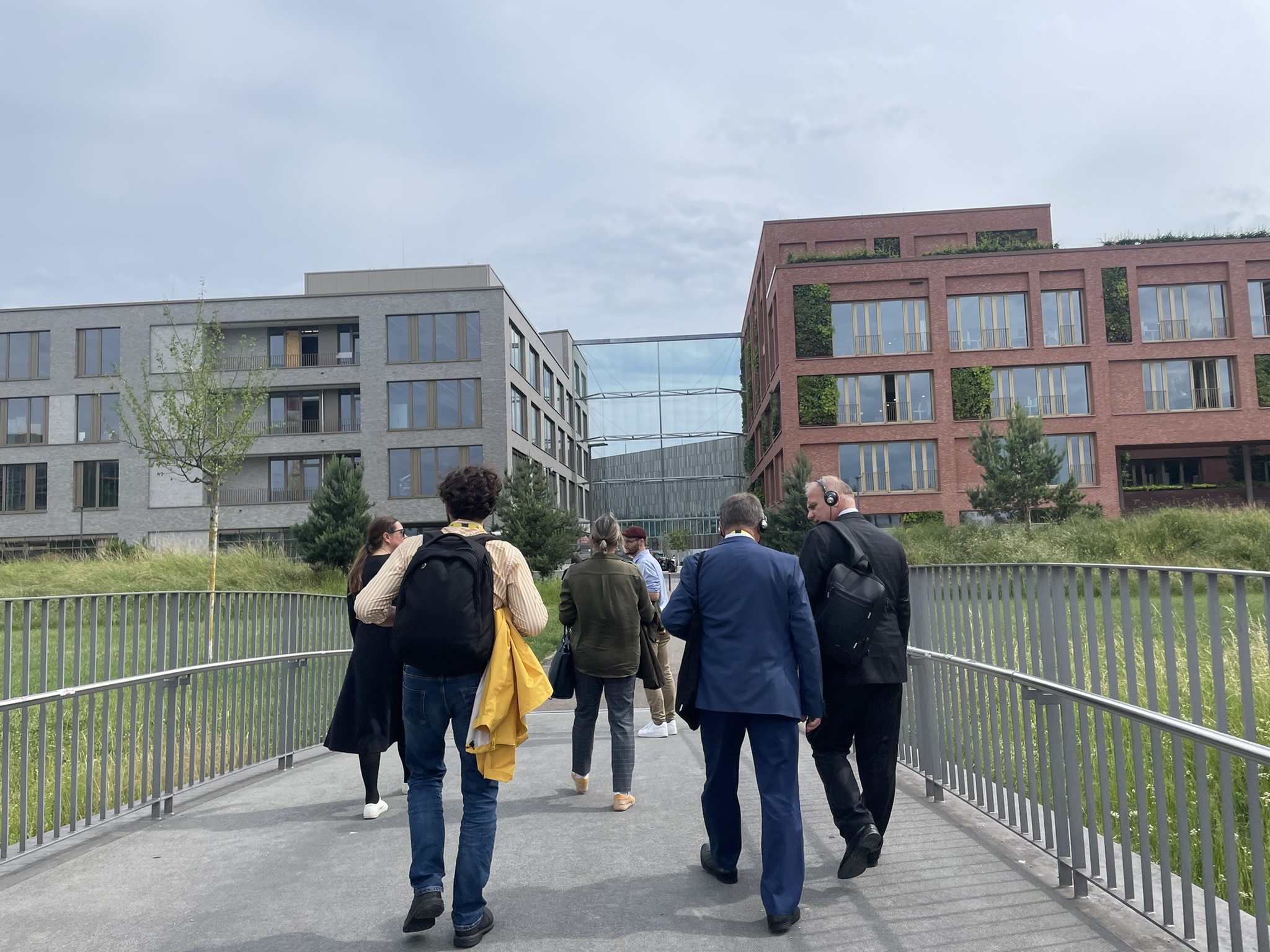
All parties agreed that a successful energy transition requires further collaboration and networking to finance and implement projects in the long term. Discussions about potential next steps continued even during the city tour in the afternoon—which concluded in impressive surroundings atop Germany’s oldest television tower. After two long and intensive days, the farewell dinner made one thing clear: The energy partnership between Bălți and Stuttgart is just beginning, because ideas and potential are in no short supply. So long, Stuttgart – see you in Bălți!

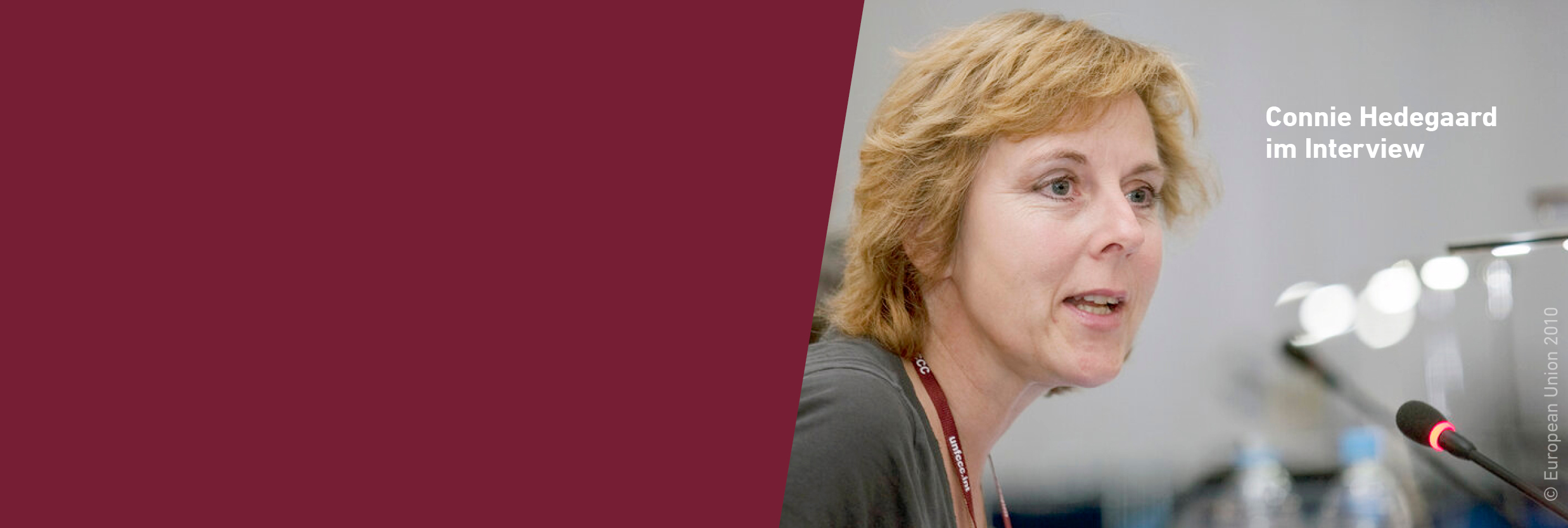
Social Media